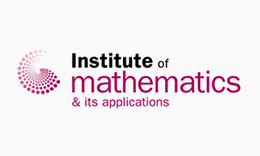Mathematics Code G103 Attend an Open Day Attend an Open Day
Apply NowKey Facts
G103-
UCAS Tariff
144
-
Course duration
4 years
Available for September start 2026
Further details on entry requirements
Apply NowThe Master's in Mathematics, at Aberystwyth University, uncovers a fascinating and challenging discipline that combines the identification and analysis of shapes and patterns with data collation and calculation.
Mathematics is fundamentally important to modern society, contributing to numerous facets of life, including science, engineering, technology and finance.
Studying this MMath option provides considerably more access to specialist areas of Mathematics and in your final year, you will undertake short research projects with a lecturer, allied to your particular mathematical or statistical interests.
You will also become part of a pool of graduates that is in significant demand across many industries for their problem-solving abilities, clear analytical thought processes and capacity for logical argument.
Course Overview
Modules September start - 2026
Please note: The modules listed below are those currently intended for delivery during the next academic year and may be subject to change. They are included here to give an indication of how the course is structured.
| Module Name | Module Code | Credit Value |
|---|---|---|
| Algebra * | MA10510 | 10 |
| Calculus * | MP10610 | 10 |
| Career Planning and Mathematical Skills Development * | MA10720 | 20 |
| Coordinate and Vector Geometry * | MA10110 | 10 |
| Differential Equations * | MA11210 | 10 |
| Further Algebra and Calculus * | MP11010 | 10 |
| Mathematical Analysis * | MA11110 | 10 |
| Probability * | MA10310 | 10 |
| Statistics * | MA11310 | 10 |
| Module Name | Module Code | Credit Value |
|---|---|---|
| Mathematical Physics * | PM26020 | 20 |
| Applied Statistics | MA26620 | 20 |
| Complex Analysis | MA21510 | 10 |
| Introduction to Abstract Algebra | MA20310 | 10 |
| Introduction to Numerical Analysis and its applications * | MA25220 | 20 |
| Linear Algebra * | MA21410 | 10 |
| Real Analysis | MA20110 | 10 |
Options
| Module Name | Module Code | Credit Value |
|---|---|---|
| Advanced Dynamics | MA25710 | 10 |
| Distributions and Estimation | MA26010 | 10 |
| Hydrodynamics 1 | MA25610 | 10 |
| Module Name | Module Code | Credit Value |
|---|---|---|
| Group Theory | MA30110 | 10 |
| Norms and Differential Equations | MA30210 | 10 |
| Module Name | Module Code | Credit Value |
|---|---|---|
| Major Project * | MAM9840 | 40 |
| Minor Project * | MAM9720 | 20 |
* Also available partially or entirely through the medium of Welsh
Careers
Teaching & Learning
Student Testimonials
Typical Entry Requirements
UCAS Tariff 144
A Levels AAA with A in Mathematics
GCSE requirements (minimum grade C/4):
English or Welsh and Mathematics
BTEC National Diploma:
DDD-DDM with A in A level Mathematics
International Baccalaureate:
34-32 points overall with 6 points in Mathematics at Higher Level
European Baccalaureate:
80% overall with 7 in Mathematics
English Language Requirements:
See our Undergraduate English Language Requirements for this course. Pre-sessional English Programmes are also available for students who do not meet our English Language Requirements.
Country Specific Entry Requirements:
International students whose qualification is not listed on this page, can check our Country Specific Entry Requirements for further information.
The University welcomes undergraduate applications from students studying the Access to Higher Education Diploma or T-level qualifications, provided that relevant subject content and learning outcomes are met. We are not able to accept Access to Higher Education Diplomas or T-levels as a general qualification for every undergraduate degree course.
Our inclusive admissions policy values breadth as well as depth of study. Applicants are selected on their own individual merits and offers can vary. If you would like to check the eligibility of your qualifications before submitting an application, please contact the Undergraduate Admissions Office for advice and guidance.

